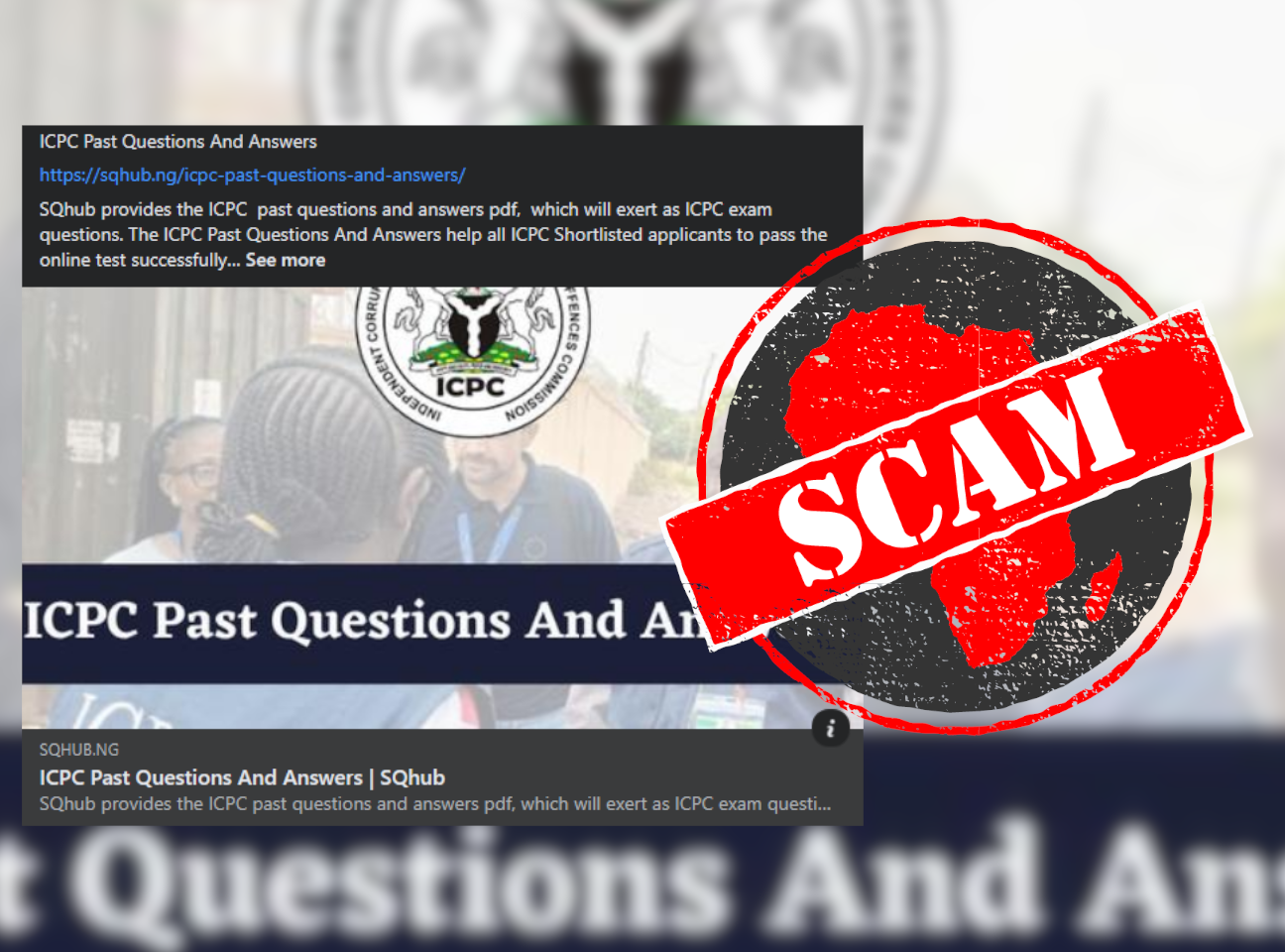IN SHORT: Nigeria's corruption agency says it has not published any past recruitment exams with answers. The documents circulating online may be aimed at scamming people.
A post circulating on Facebook in June 2023 claims that Nigeria’s Independent Corrupt Practices and Other Related Offences Commission (ICPC) is sharing handouts containing questions and answers from previous recruitment exercises.
The ICPC’s mandate is to investigate, prosecute and prevent offences of corruption in Nigeria. The commission advertises recruitment drives on its careers page.
The headline of the post reads: “ICPC Past Questions And Answers.” It claims these will help all shortlisted applicants to pass the commission’s online test.
Other versions of the claim appear here, here, here, here, here and here.
Has the ICPC really made these questions and answers available to the public? We checked.

ICPC: We have nothing to do with past questions and answers
The first red flag is that the link in the post does not take you to the official website of the ICPC, but to a basic-looking site with a number of pop-up adverts. From there, you can download a pdf file containing questions and answers.
Those making use of the document are asked to contact a WhatsApp number if they find any missing pages. This is another red flag. It is unlikely that the ICPC would communicate with potential recruits in this way or publish documents with missing pages.
On 14 June, the ICPC issued a disclaimer stating that it had nothing to do with the so-called past questions and answers.
“Members of the public should therefore ignore the online publication and report to the commission any person found involved in disseminating such fake information and extorting money from hapless applicants,” the disclaimer reads.
Republish our content for free
For publishers: what to do if your post is rated false
A fact-checker has rated your Facebook or Instagram post as “false”, “altered”, “partly false” or “missing context”. This could have serious consequences. What do you do?
Click on our guide for the steps you should follow.
Publishers guideAfrica Check teams up with Facebook
Africa Check is a partner in Meta's third-party fact-checking programme to help stop the spread of false information on social media.
The content we rate as “false” will be downgraded on Facebook and Instagram. This means fewer people will see it.
You can also help identify false information on Facebook. This guide explains how.


Add new comment